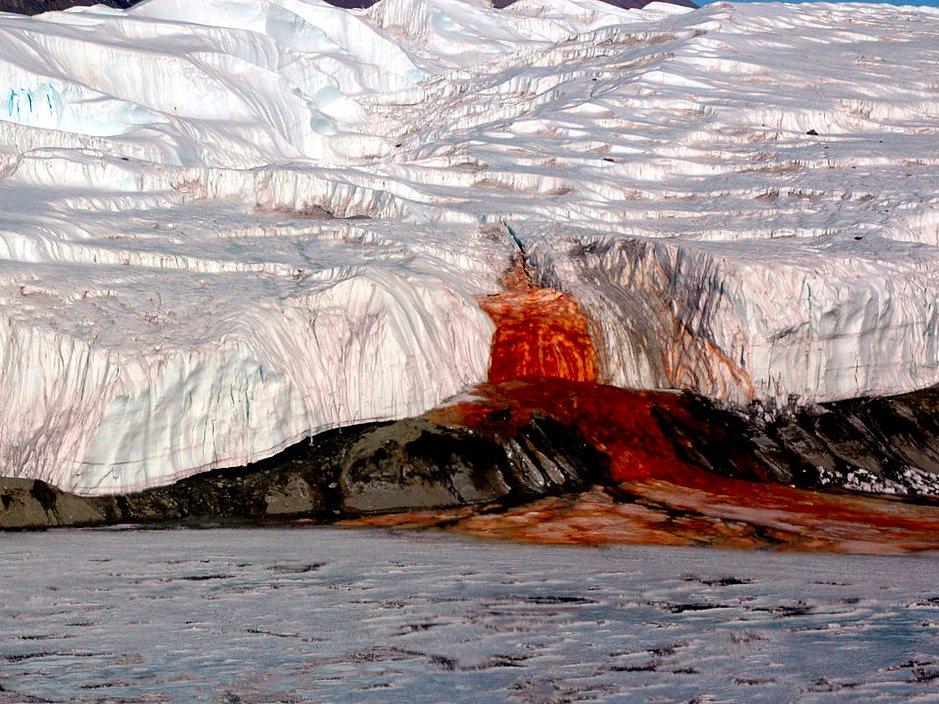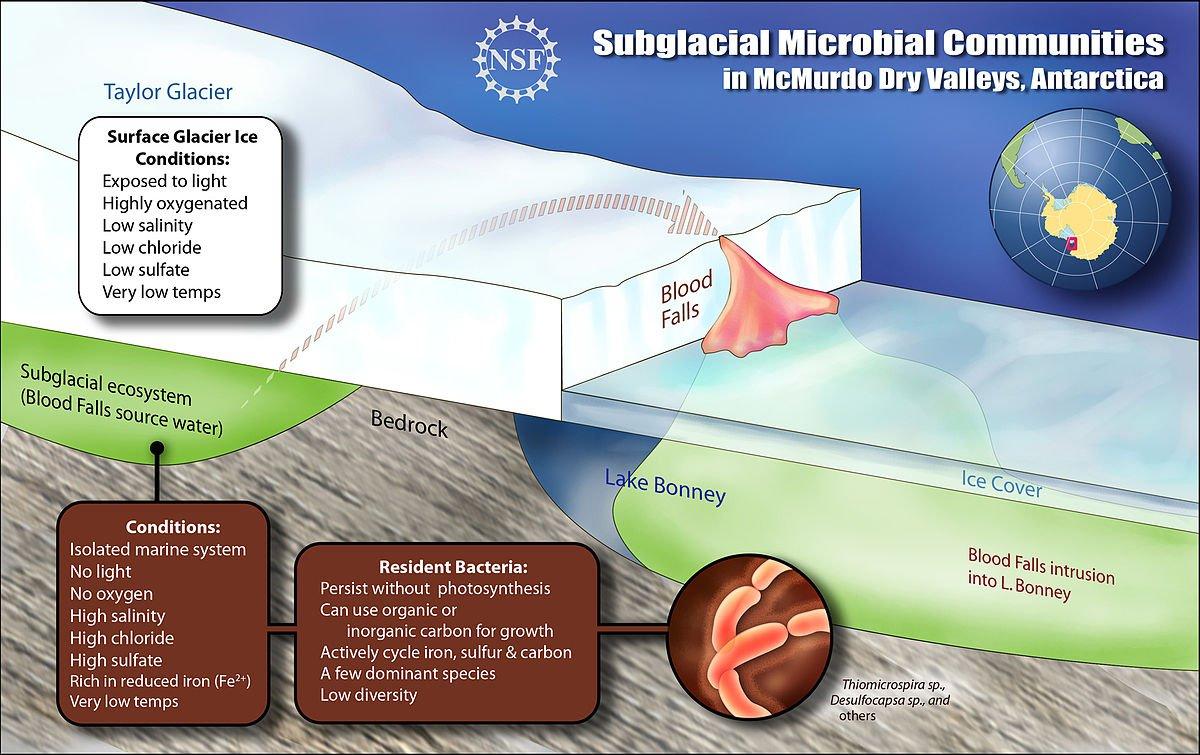Scientists have solved the 100-year-old mystery of Antarctica's Blood Falls

A study has finally found the source of Antarctica’s gruesome "Blood Falls".
It’s been 106 years since Australian geologist Griffith Taylor discovered the vivid red falls flowing from the glacier named after him, onto the ice lake West Lake Bonney.
It was originally thought to be caused by red algae, but it wasn’t until 2003 that it was decided the red colour came from oxidised iron and water was most likely draining from a five-million-year-old saltwater lake.
Now a study from the University of Alaska Fairbanks and Colorado College confirms the glacier not only has a lake underneath it, it also has its own water system which has been flowing for a million years.
The team used echolocation to track where the water flowed. The reason it has never frozen, they say, is due to a perpetual hydraulic system which sees the heat energy released by water freezing in turn melting the surrounding ice.

The uniqueness of Blood Falls as a "time capsule" for ancient microbial systems fascinates scientists and gives them a way to study the possibility of life on other planets without the need to drill into ice caps.
You can read the full report in the Journal of Glaciology.
• How the youngest billionaire in the world, 20-year-old Alexandra Andresen, travels
• This incredible vertical farm skyscraper could feed an entire town
• Canada is launching an experiment that will give 4,000 people free money until 2020
Read the original article on Business Insider UK. © 2016. Follow Business Insider UK on Twitter.
Join our commenting forum
Join thought-provoking conversations, follow other Independent readers and see their replies
Comments
Bookmark popover
Removed from bookmarks